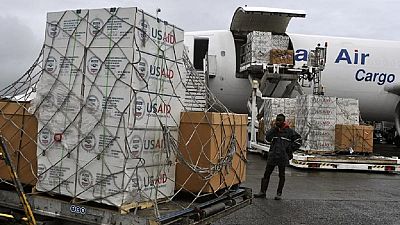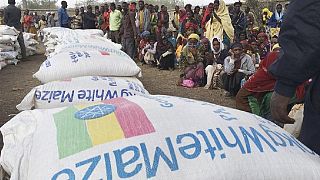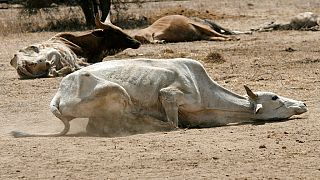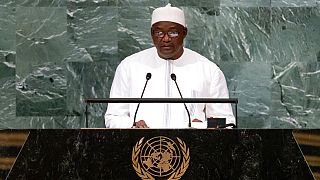USA
The United States has extended food and health aid totaling $169m, the U.S. government’s humanitarian relief agency, USAID, has announced.
The bulk of the funds will go to Ethiopia who are set to benefit to the tune of $137 million with the remaining going to neighbouring Kenya.
Part of Ethiopia’s fund includes enough food to feed 3 million people. According to a USAID statement, the Trump administration approved the aid principally to feed people starving in both countries.
“With this new funding, the United States is scaling up emergency food assistance, while providing specialized nutrition supplies to treat malnourished children, and also furnishing safe drinking water and essential health services,” the USAID’s statement said.
The latest wave of funding comes after Trump pledged $639 million last month in urgent food assistance for those in Somalia, South Sudan, Nigeria and Yemen.
Ethiopia recently reported an imminent food shortage after they run out of food aid for over one million people. The United Kingdom subsequently voted funds for Addis Ababa and for neighbouring Somalia.
Kenya and Ethiopia continue to face the brunt of terrorist activities in the Horn of Africa region. Kenya has over the years had to shelter Somalis fleeing from Al-Shabaab insurgency back home.
Both countries are engaged with Somali army and African Union forces in counter insurgency efforts against the group. Ethiopia also houses thousands of South Sudanese fleeing conflict back home.
The Kenyan funds, aside catering for refugees fleeing conflicts is also meant to cushion locals suffering from drought, the agency said. Rising food prices have also been an ongoing concern in the country especially in the run-up to crucial general elections on August 8, 2017.
Increased aid comes as numerous countries in the region face crisis-level food shortages due to armed conflict, drought and economic upheaval that have also resulted in a lack of medical care, sanitation, shelter and safety.
Conflicts can also shift countries’ resources away from infrastructure and public health, causing food and water shortages, overcrowding and lack of sanitation. Such conditions can lead to diseases such as cholera, measles and malaria.
According to the United Nations, 795 million people worldwide are undernourished, mostly in developing countries. It has already warned of mass starvation in Yemen, Nigeria, Somalia and South Sudan.














01:21
Ethiopian Orthodox Christians around the world celebrate Easter
01:15
Russian trainers, US troops housed in same base in Niger
01:06
Kenya: Residents lose more property to heavy rains
00:57
Humanitarian crisis escalates in Northeastern Mali as armed groups besiege major towns
01:10
Tourists and staff evacuated from Kenya's flood Maasai Mara national reserve
01:02
Pics of the day: May 2, 2024